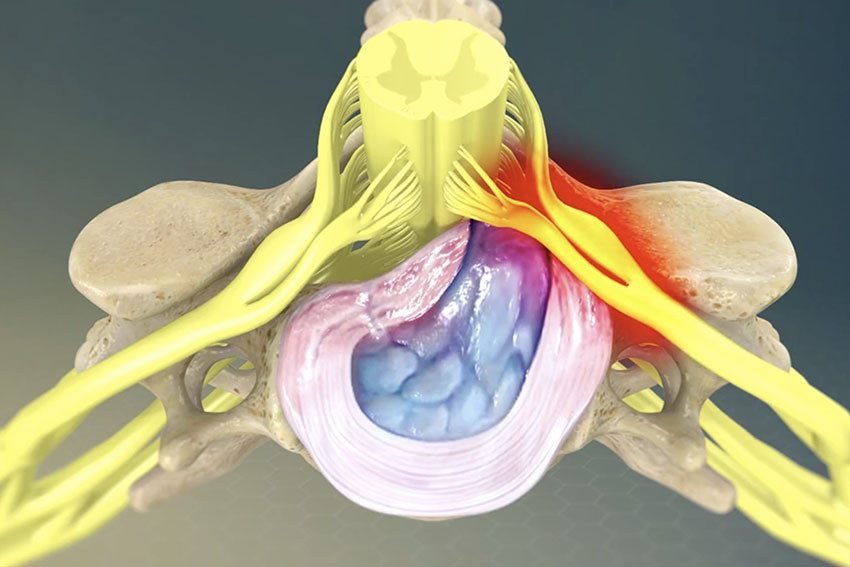
Back problems are common sources of pain, disability, loss of income and depression. They commonly present with back and leg pain, numbness and tingling and weakness. The pain can range from mild requiring frequent repositioning to severely debilitating necessitating ambulance transport to the hospital. At our Hackettstown and Newton spine clinics, we offer treatment options for common problems, like pinched nerves, which cause severe back pain.
What are the causes?
The causes of the pinched nerve and severe back pain are as numerous as the people who have it in Hackettstown and Newton. They include congenital, infectious, inflammatory, ischemic, iatrogenic, traumatic, tumors, endocrine, neurological and vascular and degenerative. Examples of these include:
- Congenital - spinal bifida, Chiari Malformations, tethered spinal cord
- Infectious - infection of the vertebrae or disks
- Inflammatory - ankylosing spondylitis
- Ischemic - ischemia of the spinal cord
- Iatrogenic - the spine falling apart after surgery
- Traumatic - fractures, breaks and dislocations of the spine
- Tumors - primary or secondary tumors of the spine and spinal cord
- Endocrine - osteoporosis related spinal fractures
- Neurological - spinal nerve or cord compression or injury
- Vascular - vascular malformations which are like blood vessel tumors
- Degenerative - the most common cause of back and leg pain is from wear and tear changes in the spine, commonly causing bone spurs, stenosis, arthritis and disc herniations, often referred to as a pinched nerve
What is a pinched nerve?
People commonly ask me why they feel pain in their leg when the problems in their back. This is because sensory pain fibers from the leg form nerves, and travel up the leg and enter the spine. These fibers eventually travel through the spinal cord to the brain . When a disk herniation compresses (or “pinches”) these ascending nerve fibers it changes the electrical signal traveling to your brain to pain, making you think your leg is hurting!
What is the treatment?
Initial treatment should include physical therapy, NSAIDS and brief bed rest. If the pain does not improve epidural steroid injections and surgery should be considered. Pinched nerves can be easily treated with an endoscopic discectomy, which is an out-patient, minimally invasive endoscopic procedure through a 1/3 inch incision. The disk herniation is removed under direct visualization through the endoscope. The patient is discharge home the same day and often can return to work in a few days or weeks.
To learn more about our treatment options for pinched nerves and severe back pain, reach out to our team in Hackettstown or Newton.
